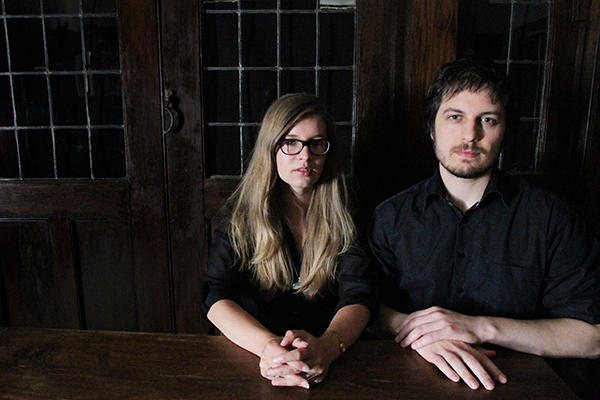Artist Profile: Luckless
Was there a moment that made you want to do music?
I’ve always played music, and I’ve always wanted to play my own. I remember listening to crappy singer-songwriters at the age of about 13 and wanting to be able to DO THAT. Then I was going to punk rock shows and writing zines at age 18 and 19 and was simultaneously passionately inspired by the scene and deeply depressed because I didn’t want to be just in the audience any more. I think that was when I realised that I would be happier as a failing musician than as a successful anything-else. But it took me a very long time to summon up the chutzpah to actually commit myself to jumping into the abyss of putting pen to paper and feeling like I was allowed to write. Not many people tell you that you’re not going to be any good when you start – they’re more likely to tell you that you’re either born with it or you’ll always be a faker. I had to spend a lot of time making terrible music before I came up with anything I was remotely proud of.
Your new album is titled Vindication Blues, was there a story behind that name?
Vindication Blues is that combined feeling of self-righteousness and depression you get when everything you predicted would go wrong, did go wrong.
Perhaps it’s self-sabotage, but I prefer to think that it’s just supreme realism.
What was the process like this time round compared to your debut release?
This record came together much more quickly than the debut. The first record was a culmination of a few years of writing, and the recording process was stretched out over an entire year, done in dribs and drabs when we could find time at the studio. For Vindication Blues, all the songs were written within a year, and we spent three weeks at The Sitting Room in Lyttelton and one week at The Lab in Auckland, and then it was done. It was a lot more raw and immediate than the first one – more live playing and more sophisticated, production-wise. And perhaps it’s a more personal record, less abstract.
Did anything special influence the songwriting process?
I split up with my hometown of Auckland at the end of 2012 and spent most of the following year travelling and playing music. That dislocation and alienation of being rootless and away from any kind of spiritual home definitely fed into what I was writing about. I landed in Lyttelton, where many of my working-musician-comrades live, and found a lot of support and inspiration here, especially in the work ethic of those same friends, who are forever writing and performing and bettering their craft. I think this album came out as well as it did because of the level of commitment we were able to bring to it.
Finally, if you could steal a musician's songwriting powers, who would it be?
Lyrically, John Darnielle from The Mountain Goats. One of my favourite lines of all time is from his song “Old College Try” from Tallahassee: “the way those eyes I’ve always loved illuminate this place like a trashcan fire in a prison cell / like the searchlights in the parking lots of hell.” Musically, St Vincent. Her guitar-playing and her arrangements and her experimentation are like lighter fluid torching all the rest of the guitarists I’ve ever seen.







